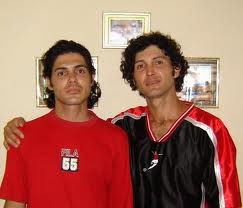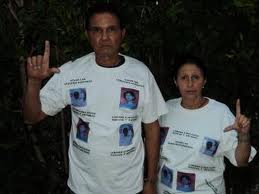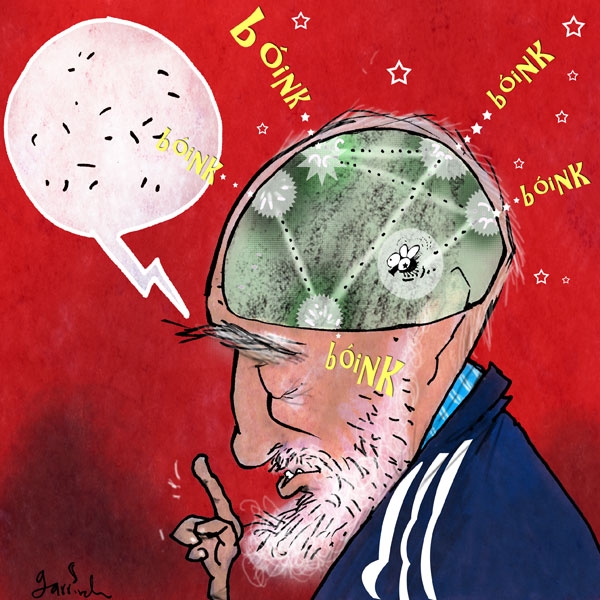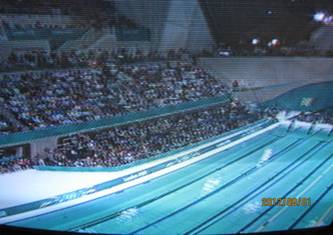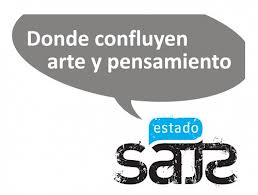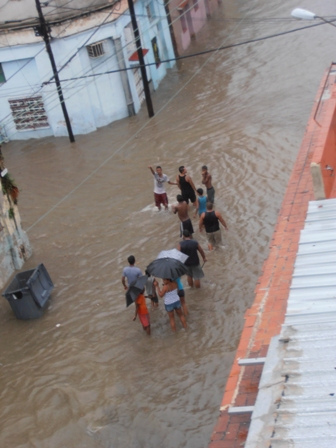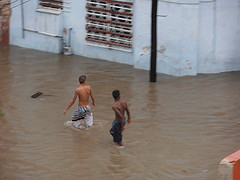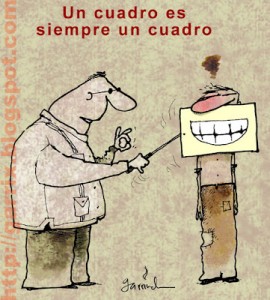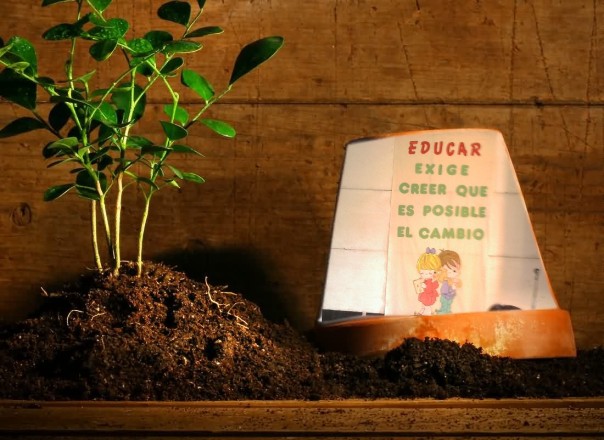
The event has been covered by Cuba’s National Television, which is unusual since fatal traffic accidents occur daily in Cuba and never receive this level of media coverage.
I will not get into details regarding the technical analysis presented by the official version of the event; I am not an expert, although one does not need to be an expert to question their version. I want to clarify that I learned about how the event occurred through the television since only a brief verbal version was given to me by Major Sanchez when I received my husband’s body. I told him that I did not believe what he was saying and that I needed to talk to the surviving witnesses. I was not informed by the authorities about the death of my husband. Yesterday, July 31th at 8:45pm, 10 days after the death of Oswaldo and Harold, I was visited by two officers from the Center for Criminal Investigations and Operations carrying a subpoena that required my presence today at 11:00am, with the purpose to “clarify issues of civil liability and responsibility regarding the accident.”
As Oswaldo Payá Sardiñas’ wife and on behalf of my family living inside and outside Cuba I declare:
1. We do not accept the explanation of the events as presented in national television because:It has been presented by the same governmental organization that under the Security of the State has sent agents threatening to kill Oswaldo multiple times over the years; they have discredited, defamed, spied, and insulted us through media campaigns inside and outside Cuba; the same individuals who have placed microphones on our bed, in our phones; the same individuals who, knowing that Oswaldo’s mother had cancer, proceeded to cowardly visit and intimidate her, who did not allow her children living outside Cuba to visit her; the same individuals who forbade my oldest son, a 24-year-old student, from visiting his aunt in Spain during his vacations last year, who do not allow any of our family members to leave or enter Cuba.
They are the same individuals who intimidate our neighbors, my husband’s co-workers, my brothers and sisters from the Christian community, and even people that we hire to make repairs in our house; they go to the institutions where my sons and daughter study or work and alert their peers to avoid relating to them; they are the same individuals who break into hospitals and intimidate doctors every time my children have any type of health problems; the same individuals who have attacked my house with mobs brought from other places and who have painted my house facade with offensive signs, who have stained my door with red paint simulating blood, who have filled the walls of the neighborhood with threatening signs and phrases packed with hate.
They are the same individuals who on several occasions have loosened the screws on the wheels of our car knowing that we were traveling with family and friends. Last June 2nd, Oswaldo and I were traveling in our car (a 1964 VW station wagon) towards my mother’s house in La Lisa. Driving through La Calzada del Cerro and having just driven across the intersection with Rancho Boyeros Avenue, we were hit by an old American car in the right rear wheel of our vehicle with such a force that it made our car rock. My husband could not control it and after sliding on the two left wheels, already on the opposite lane the car flipped, we were trapped inside and covered with broken windshield glass. Oswaldo was hurt in his left elbow and I was unhurt.
These are the same individuals who have threatened to kill members of the Movement and their families, who have imprisoned Yosvany Melchior, a young man, son of Rosa Maria Rodriguez, a member of the Movement. He is serving twelve years in prison for a crime he did not commit. Their goal is to make people abandon the Christian Liberation Movement.
…I do not believe the official version because:
2. My husband, Oswaldo Payá Sardiñas was notable for his limitless sense of responsibility towards all people, especially those who associated with him. He would never have allowed the driver of the car to speed. His friends and those who know him know that I speak the truth when I say this. He knew his life was at risk every day in Cuba.
3. Because I received the news of the alleged accident from Madrid at 3:18pm on Sunday July 22 and was told “four people were traveling but only three are in the hospital, there is no available information regarding the forth one. Two friends, one of them is unconscious. They were hit and pushed away from the road. Do you know who the other two were? One of them has disappeared.”
4. Because I was not allowed to meet with the Swedish man and have not yet been allowed to visit the Spaniard, survivors of the event.
Because of these records and information that have reached us about what happened in the newspaper Granma, my family calls on international institutions for help demanding an independent investigation of the facts.
I’m very proud to have shared 26 years of my life with an extraordinary man, I am proud of the family we have founded. He had the sorrow of not being able to devote to his family all the time he wished, but his passion to serve always led him to work for the common good with all his intelligence and intellectual ability.
He constantly fought and searched for ways for the people to ascend to their rights, he said: “Neither the state nor the market can dominate society, or be above the people’s decisions, freedom and dignity.”
Now we must try to direct our life without the physical presence of Oswaldo, it will be very hard, but those of us who live by faith know that he will continue to protect us, and will always be in our midst.
Thank you for listening.
Havana, August 1, 2012
Translated by Cleonte

